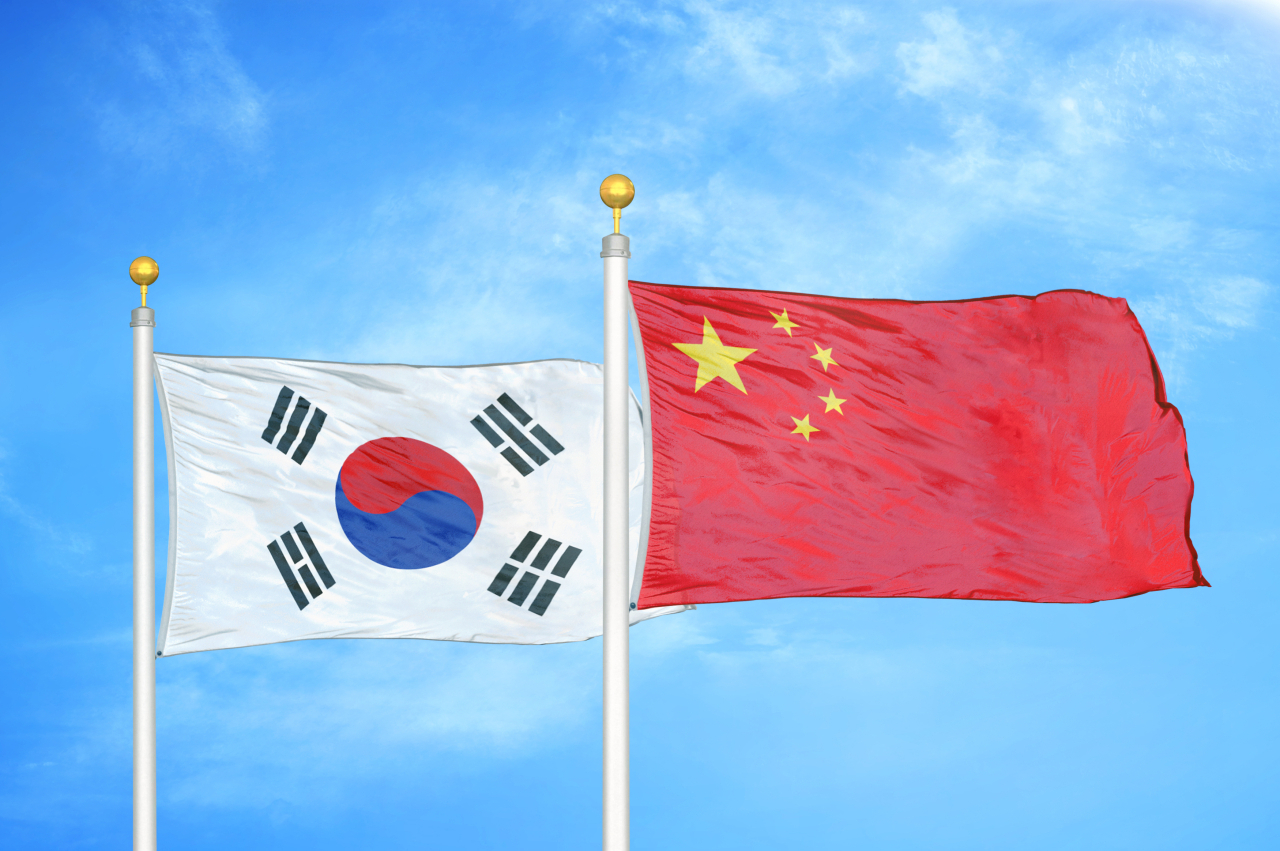
China has continued to pounce on South Korean President Yoon Suk Yeol’s remarks on the Taiwan issue, raising tensions between the two countries, especially in the run-up to the South Korea-US summit where the leaders will discuss the alliance’s role in maintaining peace and stability in the Indo-Pacific region as one of the key agenda topics.
China’s Foreign Ministry on Sunday belatedly unveiled that Vice Foreign Minister Sun Weidong lodged a formal diplomatic protest about the Taiwan issue in his meeting with on South Korean Ambassador to China Chung Jae-ho on Thursday.
China has denounced Yoon for stating that rising cross-strait tensions between Taipei and Beijing were due to “attempts to change the status quo by force” and expressing South Korea’s stance of absolutely opposing such a change in his interview with Reuters on Wednesday.
Yoon went on to say that the “Taiwan issue is not simply an issue between China and Taiwan but, like the issue of North Korea, it is a global issue.”
Yoon’s remarks are “totally unacceptable, and the Chinese side expresses serious concern and strong dissatisfaction,” Sun was quoted as saying in a statement issued by the ministry.
Sun also criticized Yoon for equating the Taiwan issue with the two Koreas on the Korean Peninsula without mentioning the "One China" principle. China’s vice foreign minister claimed that Korean Peninsula affairs and the Taiwan issue are different in nature and are not comparable at all, saying that the two Koreas are sovereign countries that have joined the United Nations. Taiwan is not a UN member.
Despite South Korea’s repeated calls for China to refrain from “diplomatic discourtesy,” China has continued blistering criticism of Yoon’s remarks on the Taiwan issue.
Chinese Foreign Minister Qin Gang on Friday warned that “those who play with fire on Taiwan will eventually get themselves burned” during his public speech. Qin did not specify the target of the warning, but many saw the fiery rhetoric as targeting Yoon.
In response, South Korea’s Foreign Ministry later in the day underscored that the Yoon government will “consistently adhere to the position of pursuing reciprocal cooperation based on mutual respect, reciprocity and common interest” while treating China with dignity and respect.
“We hope that the Chinese side will respond accordingly and exercise caution in their actions and remarks,” a ministry official said on condition of anonymity.
South Korea’s Foreign Ministry on Thursday also immediately reacted after Chinese Foreign Ministry spokesperson Wang Wenbin said Beijing would not allow others to meddle in the Taiwan issue verbally and called on South Korea to “prudently handle matters” when asked about Yoon’s remarks during a regular press briefing.
“The spokesperson’s remarks must be pointed out as a serious diplomatic discourtesy that calls into question China’s national integrity,” South Korea’s Foreign Ministry said, dismissing Wang’s remarks as “unmentionable.”
On the same day, Seoul also summoned Chinese Ambassador to South Korea Xing Haiming to make a strong protest.
The US State Department on Friday said Washington will continue to support a peaceful resolution of cross-strait issues in coordination with its important allies and partners, of course including South Korea, when asked about China’s harsh backlash against Yoon’s statement.
“We will keep coordinating with friends and allies across the Indo-Pacific to advance what we believe is our shared prosperity and security values, including preserving peace and stability across the Taiwan Strait,” Vedant Patel, principal deputy spokesperson for the US State Department, said.
China’s vehement response came just before Yoon is set to embark on his state visit to the US on Monday for his summit with US President Joe Biden, where the Taiwan issue is widely expected to be one of topics on the agenda for discussion.
The two leaders will “discuss a shared vision of a strong and deeply integrated US-ROK Alliance that maintains peace, stability and prosperity in the Indo-Pacific and beyond,” the White House last week said, referring to South Korea by the acronym of its official name, the Republic of Korea.
Yoon and Biden recognized the “importance of preserving peace and stability in the Taiwan Strait as an essential element in security and prosperity in the Indo-Pacific region” in a joint statement issued following the summit in May last year.
But the upcoming Biden-Yoon summit will be held for the first time since South Korea unveiled its new Indo-Pacific strategy last December. As part of the strategy, the Yoon government reaffirms the “importance of peace and stability in the Taiwan Strait for the peace and stability of the Korean Peninsula.”





